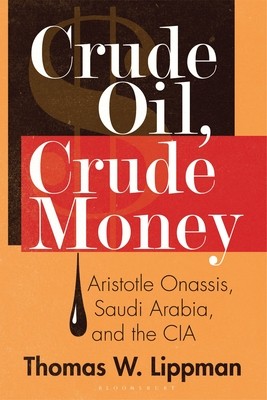
- We will send in 10–14 business days.
- Author: Thomas W Lippman
- Publisher: Praeger
- ISBN-10: 1440863946
- ISBN-13: 9781440863943
- Format: 16 x 23.9 x 2.5 cm, hardcover
- Language: English
- SAVE -10% with code: EXTRA
Reviews
Description
In 1954 Aristotle Onassis (long before he married Jacqueline Kennedy) made a bold business gamble: he tried to corner the crude oil shipping market by signing a deal with the King of Saudi Arabia. If it had worked, it would have reshaped the history of the Middle East. As it was, the proposed deal terrified British and U.S. oil companies and the Dulles brothers, who saw it as the first move in the nationalization of Saudi oil. Complicating things were the burgeoning Arab nationalist movement led by Egypt's newly elected president, Gamal Nasser. And of course there were the Soviets, now without Stalin, eager to build influence in the region.
This little known story about the collision of nationalism, money, celebrity, and oil sheds new light on the tangled history of the Middle East. Drawing on the author's immense knowledge of the Middle East, and original research incorporating unexplored declassified documents, the book is an eye-opener for students of U.S. foreign policy, anyone interested in the global oil business, and scholars and historians of the role of the U.S. in the Arab world.
EXTRA 10 % discount with code: EXTRA
The promotion ends in 20d.03:57:13
The discount code is valid when purchasing from 10 €. Discounts do not stack.
- Author: Thomas W Lippman
- Publisher: Praeger
- ISBN-10: 1440863946
- ISBN-13: 9781440863943
- Format: 16 x 23.9 x 2.5 cm, hardcover
- Language: English English
In 1954 Aristotle Onassis (long before he married Jacqueline Kennedy) made a bold business gamble: he tried to corner the crude oil shipping market by signing a deal with the King of Saudi Arabia. If it had worked, it would have reshaped the history of the Middle East. As it was, the proposed deal terrified British and U.S. oil companies and the Dulles brothers, who saw it as the first move in the nationalization of Saudi oil. Complicating things were the burgeoning Arab nationalist movement led by Egypt's newly elected president, Gamal Nasser. And of course there were the Soviets, now without Stalin, eager to build influence in the region.
This little known story about the collision of nationalism, money, celebrity, and oil sheds new light on the tangled history of the Middle East. Drawing on the author's immense knowledge of the Middle East, and original research incorporating unexplored declassified documents, the book is an eye-opener for students of U.S. foreign policy, anyone interested in the global oil business, and scholars and historians of the role of the U.S. in the Arab world.


Reviews